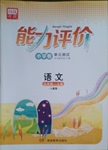题目内容
8.More than half of all Chinese have a smartphone.They reach for it the moment they wake up,keeping it in hand all day.At (61)parties (party),more people are on their smartphones than on their drinks.In addition,too many people are using smartphones while (62)driving(drive).And as a result,many car accidents happen everyday on the road.Drivers confirm that text messaging is their number one driving interruption.Smartphones are unbelievably becoming more important than the lives of (63)themselves (them) and others.As many.people take risks
Just(64)to send(send)a text or check their messages,smartphones are (65)in many ways very dangerous to people.
The smartphone (66)is affecting(affect) our desire to communicate face to face with others.Besides,it is lowering people's competence to communicate.In many cases,some people check or send text messages in the presence of a friend,(67)which means that the person they are texting is more important.Most(68)seriously(serious),relying on smartphones to make friends does not give us (69)the same advantage as making new friends in the real world.Face-to-face conversations will give us much (70)stronger (strong) communication skills in the long run.
分析 本文讲述了手机对人类生活的影响.一半以上的中国人都拥有手机,他们一睁眼就拿起手机,一整天都不放下.人们聚会的时候玩手机,甚至很多人开车时也玩手机,
这就不开避免的导致了很多车祸,有些人甚至把手机看作比他们的生命还重要.手机正在影响我们面对面的交流,不可否认通过手机结交朋友不能像现实生活中交朋友那样有益处,从长远来讲,面对面的交谈会给我们带来更强的交际能力.
解答 61.parties;考查名词复数,根据句意"在聚会时,越来越多的人在玩手机"可知此处应该用名词的复数形式.
62.driving;考查非谓语动词,while doing表示"某一动作进行时另一动作正在发生",根据句意"很多人在开车时玩手机"可知这里用driving.
63.themselves;考查反身代词,根据句意"手机比他们自己的生命还重要"可知这里应该用反身代词.
64.to send;考查动词短语,take risks to do是固定短语,意为"冒险去做某事".
65.in;考查介词,in many ways意思是"在许多方面".
66.is affecting; 考查动词的时态,根据上下文语境可知"手机正在影响我们面对面的交流",所以这里用现在进行时.
67.which;考查定语从句,这里用关系代词which指代some people check or send text messages in the presence of a friend这个句子.
68.seriously;考查副词,这里用副词形式来作句子的状语.
69.the;考查冠词,the same 特指相同的.
70.stronger;考查形容词的比较级,much后面跟形容词时要用形容词的比较级形式.
点评 首先要通读全文,了解大意,抓住上下文语境所提供的信息,仔细分析带空格的句子,明确空格所要填的词义,词型和短语搭配给出所要填的正确形式,然后整体阅读短文,核对答案.

 能力评价系列答案
能力评价系列答案 唐印文化课时测评系列答案
唐印文化课时测评系列答案| A. | calculate | B. | conclude | C. | convey | D. | convince |
| A. | applied | B. | attached | C. | added | D. | compared |
| A. | had fallen asleep | B. | have fallen asleep | ||
| C. | fall asleep | D. | fell asleep |